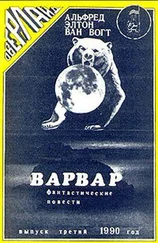The Southern Hindu, belonging to the Dravidian race, small, lively, quick-tempered, no longer corresponds in any way to the European conception of the Hindu.
As soon as you reach the South, the skin gets darker, and you are dealing with almost black people. Dressed accordingly: pink and red disappear, and dark green and violet take their place.
The big â, ô, and ê of the Northern languages disappear; everything moistens into consonants in Malayan, or is buttressed by double consonants, in Tamil (Tamil is a more ancient language than Sanscrit, and has nothing in common with the latter). The people here are no longer ‘important.’ They look at you with an expression that is of no consequence. No hypnotism at all. They are not ruminants. If they have two minutes to kill, they do not squat down. You see some of them standing up or even walking, fast.
In the temples, the gods form a façade, their gopurams are bazaars for gods, demons and giants.
All the gods are a bit devilish. You throw yourself at full length on the ground for them, and rather quickly (quite unceremoniously). In front of Ganescha, you give yourself two small blows with the fist near the ear. They have a preference for the gods of lesser divinity, for example, the goddess of smallpox. Religion loses its beauty, its peace. It has ceased to have a fine sound. They are multi-theists.
Often, at the same time, they are converted to the Catholic faith (the only part of India where converts are numerous).
The English look on them as children.
These are the natives of India, the real ones. They occupied the whole of India in the past. They were colonized by the Northern Hindus.
It is hard to say what they might have been without the influence of the conquerors and of their religion, in which they are completely wrapped up as they would have been wrapped up in any other religion.
They were people who particularly liked the magic 1of words.
At one period alone (that of Sangham) they mention 192 poets of merit: fifty-seven farmers, thirty-six women, twenty-nine Brahmins, seventeen mountaineers, thirteen foresters, seven merchants, thirteen Pandyas kings, etc., a potter and a fisherman.

It is impossible to think of India without being a Communist. The social question is perhaps only of secondary importance. But the degradation, the lack of human dignity which results from a society with two different standards is such that the whole man is corrupted by it in all that he is, says and does, and he who is honored (the Brahmins and the rajahs, and perhaps all of us) even more than he who is held in contempt.

However, there is not another country in the world where, to ‘get into conversation’ with you — in a train, no matter where — the native speaks to you… about Jesus Christ.
The Hindu is quite unable to imagine that a man could be indifferent to religion.
Most of them sincerely love Jesus Christ, regret that he was not incarnated among them, regret that he was not incarnated a second and a third time, would like to have news of him.
Nevertheless, even a European atheist is often hurt by the familiarity with which they converse about Jesus Christ.

My Bengali companion said pleasantly of the women in the South: ‘A thousand coming, not one pretty.’ He should have said: Ten thousand coming, not one pretty. (Finally, I saw one.)
As for the men, stubborn heretic faces, some with profiles and eyes like lizards (particularly when ill, they resemble lizards). Nose, eyes, mouth bunched together as if the result of a curse or of a cataclysm. Low foreheads (a frontal ribbon, one might say), and the skull with its bushy hair (but he is shaved to the top of his head) make his resemblance to a monkey more striking.
A lot of Bourbon heads too, but reduced, feverish, the power lost, and the hair worn in a bun.
Their curiosity is greater than that of the Northern Hindus, which is already so great. If one of them gets hold of the slightest bit of information about you, that you are thirty-two years old, for example, he immediately informs the entire neighborhood, all the travelers at the station, all passers-by in the city. Not only that, but from a distance he is questioned. And he replies triumphantly: ‘He is thirty-two years old. He has come to visit India.’ And the amazing news spreads like wildfire.
They look at you as one looks at a new arrival at the zoo, a bison, an ostrich, or a snake. India is a zoological garden where the natives get a chance to see, from time to time, specimens from elsewhere.
If a European is questioned on his return from India, he does not hesitate; he replies: ‘I have seen Madras, I have seen this, I have seen that.’ But this is not so; he has been seen, much more seen than he has seen.

When the Hindu talks to you, it is nose to nose. He takes the breath from your mouth. He can never get near enough. His big Jupiter-like head and his disinterested eyes are wedged between the horizon and yourself.
So, holding you down, he unrolls his phrases, he declaims. All this in order to say perfectly insignificant things. But he is driven by a strange force to make a speech, preach a sermon, and a piece of information at once takes on the importance of a matter of universal interest.
The Southern Hindus, in the villages, when you stand still a moment, surround you ten deep, enveloping you with their eyes, so close that if you cough you injure two or three of them.
If you speak, they somehow manage to get closer. The Northern Hindu declaims, the Southern Hindu roars.
Not only is his singing (that of the Dravidian populations in the South) high-pitched, but also his speech. With regard to French, if he speaks it, he has the firm-set notion that it is a language of the head, and only by extreme force and in the throes of anguish can you hope to extract more or less of it from up in the top of your skull. You always feel like saying to him: ‘Calm yourself, calm yourself, really it will come out!’ But, helpless with rage, he is carried irresistibly on.

The Tamil language is composed of words having, on an average, six syllables. Several have fourteen. When there are less than four syllables it is not a word any more, but a detritus. The English language seems to them a ruin. What are all those senseless little bubbles called the preposition, the article, etc.?
Tamil is an agglutinating language. You solder everything you can together. One word is made out of three.
In this way, though it is slightly more complicated, no doubt, the ten or fourteen syllables are formed.
These words are borne away at top speed. You touch the first syllable and you go galloping off. When you get to the end, you can take a rest. That is where little gaps in the conversation occur. However, some go at such headlong speed (most of them) that they do not stop. So you listen to this marvelous mechanism which, at a superhuman pace, accomplishes its natural purpose, without faltering.
They pronounce the words as though they were having a fit.
An unhappy childish haste, which is to be found again in the fixed expression of their eyes, fixed, yet at the same time making haste, making haste to see, making haste to see what? And doomed, obviously, to failure, though you do not know why.
When they sing, their song is like a hanging. They sing only to hang themselves, and high. They make straight for the most inaccessible notes, without a springboard, hang on in despair, and wavering between two or three higher notes, remain there crying, suffering, objects of pity, ready to let themselves be cut in pieces; but why? Then, all of a sudden, they stop short, and leave the mortal terror of the air above, then there are two minutes of silence, and up they climb again, or to be more exact, there they are again suddenly, more immensely unhappy than ever. And their tortures go on like that sometimes for over an hour.
Читать дальше













